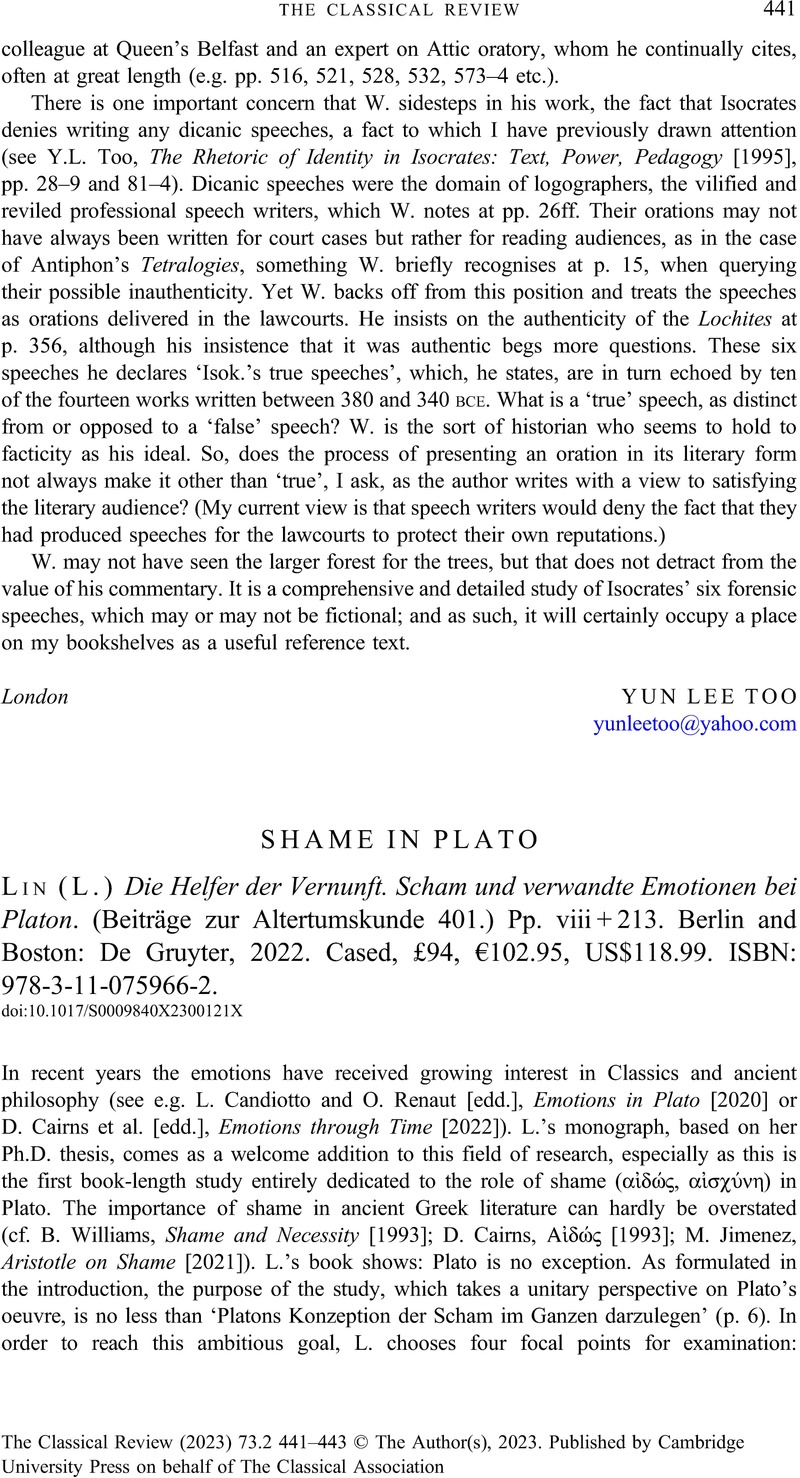No CrossRef data available.
Article contents
SHAME IN PLATO - (L.) Lin Die Helfer der Vernunft. Scham und verwandte Emotionen bei Platon. (Beiträge zur Altertumskunde 401.) Pp. viii + 213. Berlin and Boston: De Gruyter, 2022. Cased, £94, €102.95, US$118.99. ISBN: 978-3-11-075966-2.
Review products
(L.) Lin Die Helfer der Vernunft. Scham und verwandte Emotionen bei Platon. (Beiträge zur Altertumskunde 401.) Pp. viii + 213. Berlin and Boston: De Gruyter, 2022. Cased, £94, €102.95, US$118.99. ISBN: 978-3-11-075966-2.
Published online by Cambridge University Press: 16 June 2023
Abstract
An abstract is not available for this content so a preview has been provided. Please use the Get access link above for information on how to access this content.

- Type
- Reviews
- Information
- Copyright
- Copyright © The Author(s), 2023. Published by Cambridge University Press on behalf of The Classical Association



